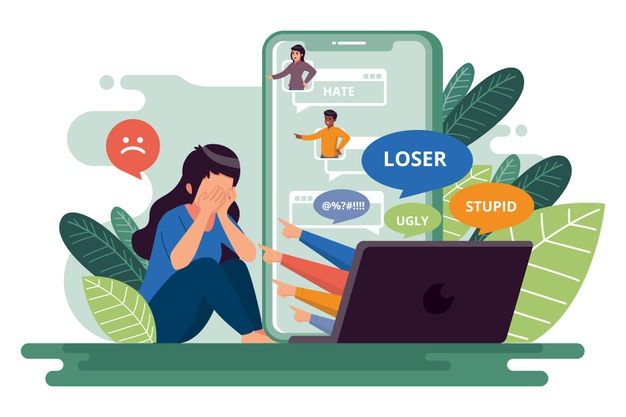
A new global study on online violence has pointed that one in five girls (19%) have left or significantly reduced use of a social media platform after being harassed, while another one in ten (12%) have changed the way they express themselves.
The survey by girls’ equality group, Plan International, shows that girls and young women worldwide are demanding urgent action from social media companies after a landmark survey has revealed more than half (58%) have been harassed or abused online.
“Attacks are most common on Facebook, where 39% say they have suffered harassment, but occur on every platform included in the global study including Instagram (23%), WhatsApp (14%), Snapchat (10%), Twitter (9%) and TikTok (6%).”
The research is based on a survey of 14,000 girls aged 15-25 in 22 countries, including Brazil, Benin, the USA and India, and a series of in-depth interviews.
The study found that girls who use social media in high and low-income countries alike are routinely subjected to explicit messages, pornographic photos, cyberstalking and other distressing forms of abuse, and reporting tools are ineffective in stopping it.
“Abuse also damages girls’ lives offline, with one in five (22%) of those surveyed saying they or a friend have been left fearing for their physical safety, while 44% say social media companies need to do more to protect them,” the report says.
Anne-Birgitte Albrectsen, CEO of Plan International said, “Although this research was gathered in conversation with more than 14,000 girls across multiple continents, they share similar experiences of harassment and discrimination.
“These attacks may not be physical, but they are often threatening, relentless, and limit girls’ freedom of expression. Driving girls out of online spaces is hugely disempowering in an increasingly digital world, and damages their ability to be seen, heard and become leaders,” she said.
Stating that girls are being left to deal with online violence on their own, with profound consequences for their confidence and wellbeing, Albrectsen said, “With COVID-19 driving more of our lives online and with internet access around the world improving, it is time for digital platforms to step up and protect their users.”
The most common type of attack is abusive and insulting language, reported by 59% of girls who have been harassed, followed by purposeful embarrassment (41%), body shaming and threats of sexual violence (both 39%).
More than a third (37%) of girls who are from an ethnic minority and have suffered abuse say they are targeted because of their race or ethnicity, while more than half (56%) of those who identify as LGBTIQ+ say they are harassed because of their gender identity or sexual orientation.
In an open letter to Facebook, Instagram, TikTok and Twitter, girls from around the world called on social media companies to create more effective ways to report abuse.
Albrectsen added that as social media companies have the power to make change, they must do more to tackle harmful behaviour and ensure that their platforms are safe environments that allow girls, young women, LGBTQ+ young people and other groups that are vulnerable to harassment to fully express themselves and play their rightful role in shaping the modern world.






